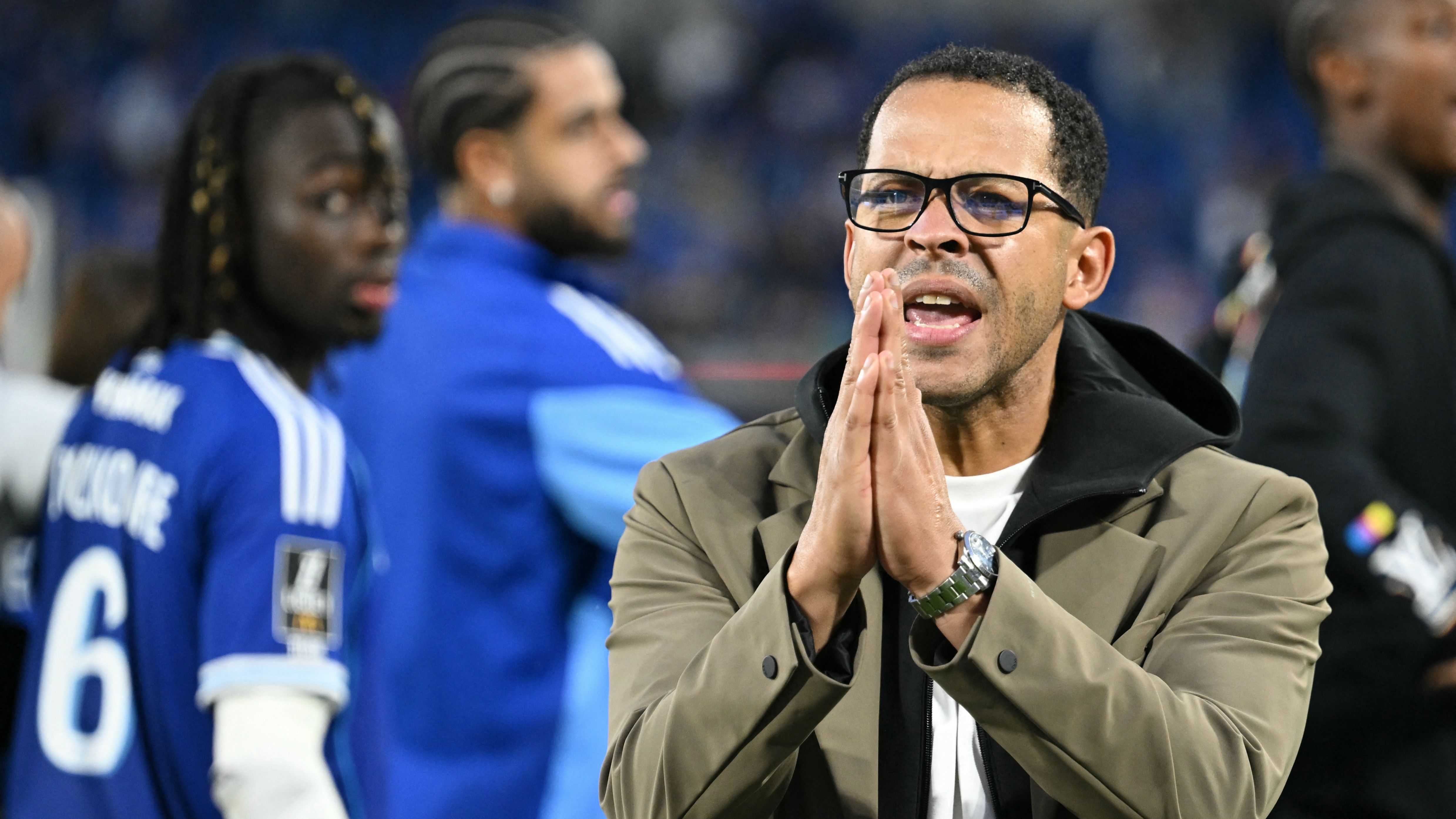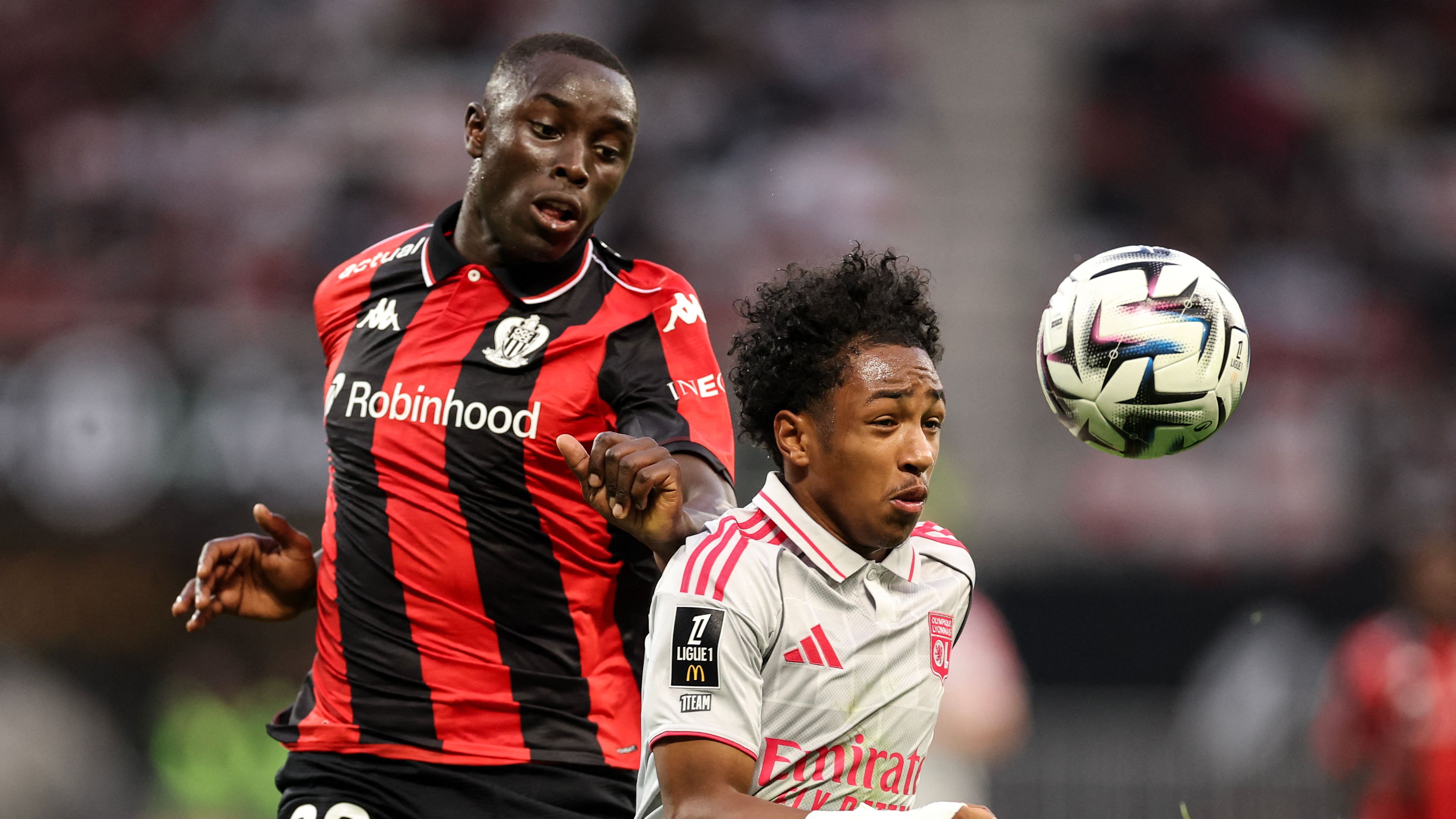

Controversy Erupts as Red Card Derails Strasbourg’s Battle Against Lyon
In a dramatic turn of events that shifted the momentum of the match, Liam Rosenior‘s outspoken criticism highlights the pivotal role of referee decisions in football outcomes. This intense Ligue 1 clash between Strasbourg and Lyon ended in heartbreak for the visitors, underscoring how a single call can alter the course of a game.
The Turning Point: Red Card Drama Unfolds
The game took a critical shift when Doukoure received his marching orders mid-match, leaving Strasbourg at a disadvantage. Initially, official Eric Wattellier viewed the challenge on Fofana as meriting just a caution, but after intervention from the video assistant, he revisited the footage. Upon review, Wattellier changed his mind, issuing a straight red, which meant Strasbourg played the last stretch with only 10 players.
Impact on the Match Dynamics
This dismissal of the defender, already under scrutiny for an earlier own goal that leveled the score for Lyon, sealed Strasbourg’s fate. The hosts capitalized late in the game when Afonso Moreira delivered a decisive strike, securing a narrow win at the Groupama Stadium right at the final whistle.
Rosenior’s Strong Objections to the Officiating
The Strasbourg manager was unequivocal in blaming the game’s outcome on flawed judgment from the officials, particularly the red card call. He contended that Wattellier let the extent of Fofana’s injury cloud his assessment, overlooking the actual intent of the play and focusing instead on the aftermath.
Direct Quotes and Analysis
“We faced a couple of key rulings that really hampered our efforts. I’m convinced that wasn’t a sending-off offense,” Rosenior explained. “It seemed like an unfortunate mishap to me. Nobody wants to see players hurt, but the call should hinge on the challenge itself, not the results. That wasn’t a reckless move at all.”
Fofana’s Injury Raises Alarms
The contentious tackle resulted in serious discomfort for Fofana, forcing the Lyon forward to leave the field on a stretcher. He was rushed to medical facilities for thorough examinations due to concerns over a severe issue.
Reactions from Lyon’s Camp
In the post-game briefing, Lyon’s assistant coach Jorge Maciel shared his worries. “Fofana is undergoing scans right now, and we’re still in the dark. The footage looks troubling,” Maciel noted. “It appears the ankle might be involved, possibly extending to the tibia and fibula. We’re waiting on the results to clarify the extent.”
Key Moments and Match Overview
Doukoure’s tough day was marked by this red card, following Strasbourg’s early advantage via Joaquin Panichelli’s goal in the 25th minute. Lyon quickly retaliated with Doukoure’s own goal just minutes later, tying the score. Even after the red card, the contest seemed destined for a stalemate until Moreira’s late heroics clinched the points for Lyon.
Statistical Breakdown
Though Lyon controlled the ball with 59 percent possession, the encounter remained closely contested with limited scoring opportunities. Lyon attempted four shots, landing two on goal, while Strasbourg fired five shots, also hitting the target twice.
Implications for Ligue 1 Standings
This result significantly influences the league positions. Lyon’s success boosts them into the Champions League contention spots, securing fourth place with 18 points from nine outings.
Challenges Ahead for Both Teams
Conversely, Strasbourg slips to seventh on 16 points, disrupting their European aspirations. Rosenior’s team will need to adapt for their upcoming match without Doukoure due to suspension, while Lyon anxiously anticipates Fofana’s medical updates, potentially facing a prolonged absence for their key player.
Upcoming Fixtures
Strasbourg will next face Auxerre, who are near the bottom of the table, on Wednesday, as Lyon prepares to take on 11th-placed Paris FC.
The Controversial Red Card Incident
In the world of football, decisions made on the pitch can drastically alter the outcome of a match, and that’s exactly what happened during Strasbourg’s tense encounter with Lyon. Liam Rosenior, the head coach of Strasbourg, found himself at the center of controversy after a referee’s call led to a costly red card and a heartbreaking late defeat. This incident highlights the high stakes of football refereeing and how split-second judgments can impact teams like Strasbourg in the competitive Ligue 1 landscape.
What Happened in the Match?
The game between Strasbourg and Lyon was a rollercoaster of emotions, with both sides showcasing high-intensity play and tactical prowess. Lyon, known for their attacking flair, dominated much of the possession, but Strasbourg held their ground with Rosenior’s strategic defensive setup. However, the turning point came in the second half when a Strasbourg player was shown a red card for what many fans and experts viewed as a questionable foul.
This red card decision stemmed from a challenge in the midfield that the referee deemed reckless. The player in question made contact with a Lyon opponent, leading to an immediate dismissal. Critics of the call, including Rosenior, argued that the foul was not severe enough to warrant a red, possibly mistaking it for a yellow card offense. In football matches like this, red card decisions can swing the momentum, and for Strasbourg, it meant playing with one less player for the remainder of the game.
- Key moments leading to the red card:
- The foul occurred around the 65th minute, during a crucial phase where Strasbourg was mounting a comeback.
- Video replays later showed that the contact was minimal, raising questions about consistency in refereeing standards.
- Lyon’s players celebrated the decision, which allowed them to exploit their numerical advantage and score the winning goal in the 88th minute.
Rosenior’s criticism wasn’t just about the call itself but also the broader implications for fair play in Ligue 1 football. He pointed out in post-match comments that such decisions could unfairly influence match outcomes, emphasizing the need for better training for referees handling high-pressure games.
Rosenior’s Reaction and Its Aftermath
Liam Rosenior, with his background as a former professional player and now a respected coach, didn’t hold back in expressing his frustration. In interviews following the match, he described the red card as “a pivotal mistake that cost us dearly,” highlighting how it disrupted Strasbourg’s game plan and morale. Rosenior’s candid remarks resonated with fans, as he stressed the importance of accurate refereeing in maintaining the integrity of football competitions.
This event has sparked wider discussions among football enthusiasts about how managers like Rosenior handle adversity. His response was measured yet passionate, focusing on the need for transparency in decision-making rather than personal attacks. For instance, Rosenior suggested that implementing more advanced review systems could prevent similar issues in future Ligue 1 fixtures.
- Why Rosenior’s criticism matters:
- It sheds light on the emotional toll on teams, as Strasbourg’s late defeat dropped them further in the league standings.
- His comments encourage dialogue about referee accountability, which is a hot topic in modern football betting and fan engagement circles.
- As a coach known for his tactical expertise, Rosenior’s feedback adds credibility to ongoing debates about red card consistency across matches.
In the context of Strasbourg’s season, this loss underscored the challenges of competing against strong teams like Lyon while dealing with external factors such as referee decisions. Rosenior’s approach to such situations often involves rallying his team, using setbacks as learning opportunities to refine strategies for upcoming games.
Impact on the Game and Team
The red card not only sealed Strasbourg’s fate in that match but also had ripple effects on their overall performance in the league. With one player sent off, Strasbourg’s defensive structure crumbled, allowing Lyon to capitalize on counter-attacks and secure a narrow victory. This type of incident is a common frustration in football, where red card rulings can turn a potential draw into a defeat, affecting team morale and fan support.
How the Red Card Affected Strasbourg’s Tactics
Rosenior had to adapt his game plan on the fly, shifting from an aggressive pressing style to a more conservative approach to protect their goal. This tactical shift, while necessary, limited Strasbourg’s ability to launch effective counter-attacks, ultimately contributing to their late defeat. Fans of Ligue 1 football might recognize this as a classic example of how a single decision can alter the flow of a match.
- Tactical adjustments post-red card:
- Strasbourg switched to a 4-4-1 formation to bolster defense, but this exposed weaknesses in their midfield.
- The team lost key scoring opportunities, with players like their star forward struggling without adequate support.
- Long-term, this could influence Rosenior’s training sessions, focusing more on discipline and avoiding risky challenges.
Moreover, red card incidents like this one often lead to suspensions, meaning Strasbourg might have to cope without that player in future matches. This adds another layer of complexity to Rosenior’s role as a coach, where managing player fitness and availability becomes crucial amidst a packed Ligue 1 schedule.
Referee Decisions in Football: A Deeper Look
Refereeing in football, especially in high-stakes leagues like Ligue 1, is under constant scrutiny. The Strasbourg vs. Lyon match is just one example of how controversial calls can dominate post-game discussions. Experts often debate the balance between enforcing rules and allowing the game to flow naturally.
Common Issues with Refereeing in Modern Football
One of the biggest challenges referees face is the speed of the game, where decisions must be made in seconds. In cases like the red card against Strasbourg, factors such as player angles and intent can be misinterpreted, leading to backlash from coaches like Rosenior. This issue is amplified in competitive environments, where every point counts toward European qualification or relegation battles.
- Factors contributing to referee errors:
- High pressure from crowds and media, which can influence split-second judgments.
- Inconsistencies in how similar fouls are penalized across different matches.
- The role of technology, such as VAR, which isn’t always implemented effectively to review red card decisions.
The Role of VAR and Potential Improvements
While VAR has been a game-changer in football, its application in matches like Strasbourg’s defeat to Lyon has room for improvement. In this instance, the lack of a thorough VAR review was a point of contention, as Rosenior and fans believed it could have overturned the red card. Enhancing VAR protocols might include faster reviews and clearer communication to coaches, ensuring decisions align with the spirit of the game.
Ultimately, incidents like this keep football engaging for fans, as they spark conversations about rule changes and fairness. For teams like Strasbourg under Rosenior’s guidance, navigating these challenges is key to building resilience and achieving success in the ever-evolving world of football.









